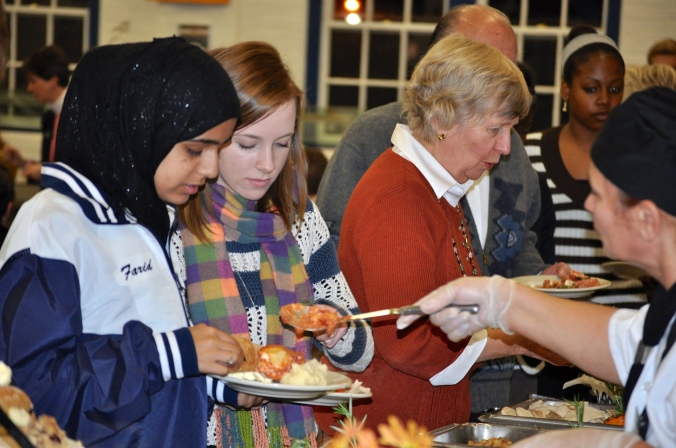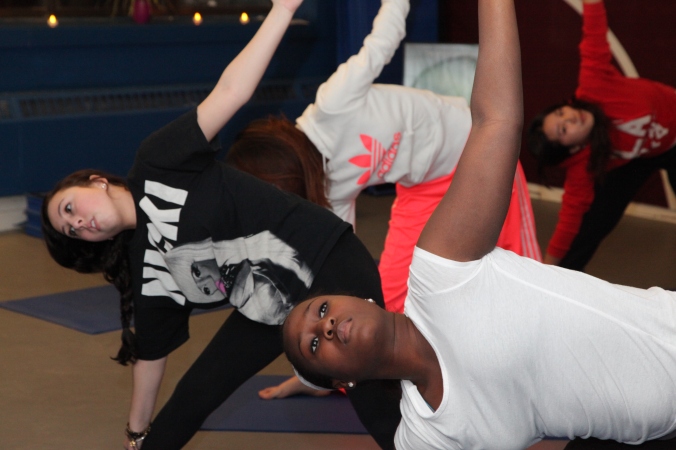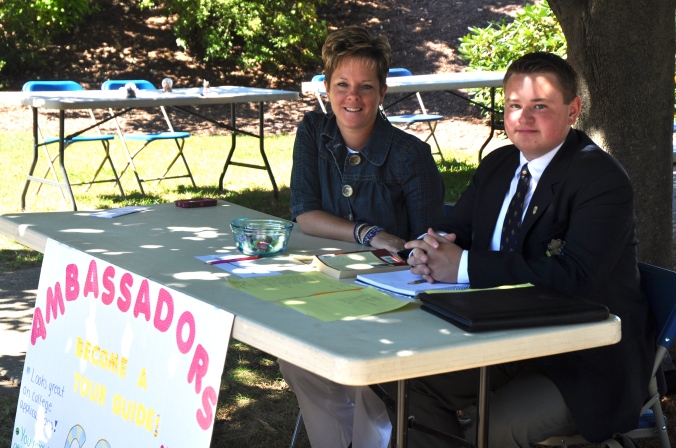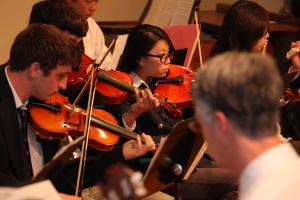One of the most common questions potential day student parents ask is: will my son or daughter enjoy going to boarding school without living on campus?
As Admission Counselors, we can assure you that most boarding schools make no distinction between boarding and day students in regards to the activities students are invited to attend, the experiences students have on campus, or the interactions students have with faculty. That being said, we asked a former day student to tell potential students why she would recommend being a day student. Here’s what she had to say:
1. You get second dinner
As a boarding school student, you are always invited to the dining hall to snag a meal (or dessert, or coffee, or hot chocolate… you get the idea). That means you can eat dinner on campus … and then have a second dinner when you get home! Also, second dessert. Sorry—I’m a little food-focused.

Cheshire Academy serves more than just cookies, but let’s be real: cookies are the best.
2. Dorm sleepovers are super fun
Dreading waking up at 4:00am to commute to campus for a 5:00am practice? Spending the night in a friend’s dorm can be a fun and practical solution. Squishing two people into a tiny twin bed isn’t so bad when you consider the fun of baking brownies with a dorm parent or watching a movie with all your friends in the common area. Also, the trek to the athletic fields at 5:00am is easier with friends.

Spending the night in the a boarding school dorm can be fun and practical.
3. Options are everywhere
One of the perks of being a day student is that you’re invited to everything. Literally everything. Every weekend event, every shuttle into the city, and every community weekend is yours to attend… or not.
While boarding students may be required to attend weekend events, day students are mostly free to pick and choose to attend whatever is most interesting to them. However, day students with really interesting passions will love the fact that they are encouraged to attend art openings on campus, theater productions, and international festivals!

This picture is from a recent community Olympics event at Cheshire Academy!
4. You have friends everywhere, even at home
Most boarding schools provide day student mixers before the first week of school. This is great for a bunch of reasons: future carpools, people to sit with at lunch on the first day of school, etc. However it’s ALSO great because when all of the boarding students leave for New York, Chicago, and Beijing, you’ll still have plenty of friends close to home. That sure makes the summer less lonely!

We promise your summers will not look like this.
Well, there you have it! Four reasons that being a day student at a boarding school really is a great experience. I could keep listing reasons, but basically it comes down to this: day students have access to tons of experiences and resources at boarding schools while still having the flexibility to design their own high school experience—and that sure sounds great to me.
Next: 5 Steps for Choosing a Boarding School




 1. Check the Dress Code
1. Check the Dress Code





















